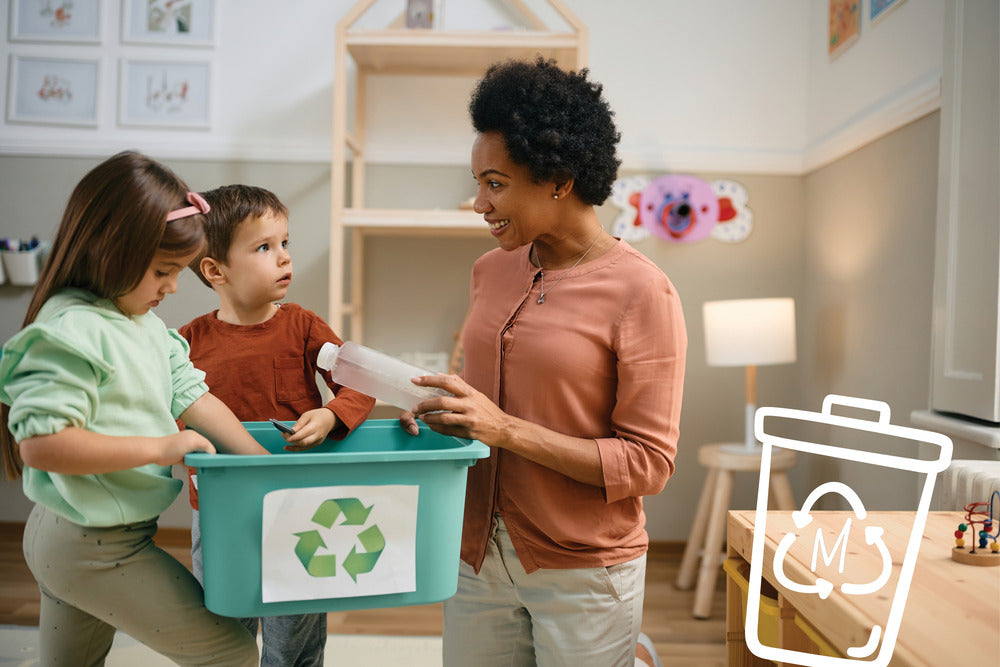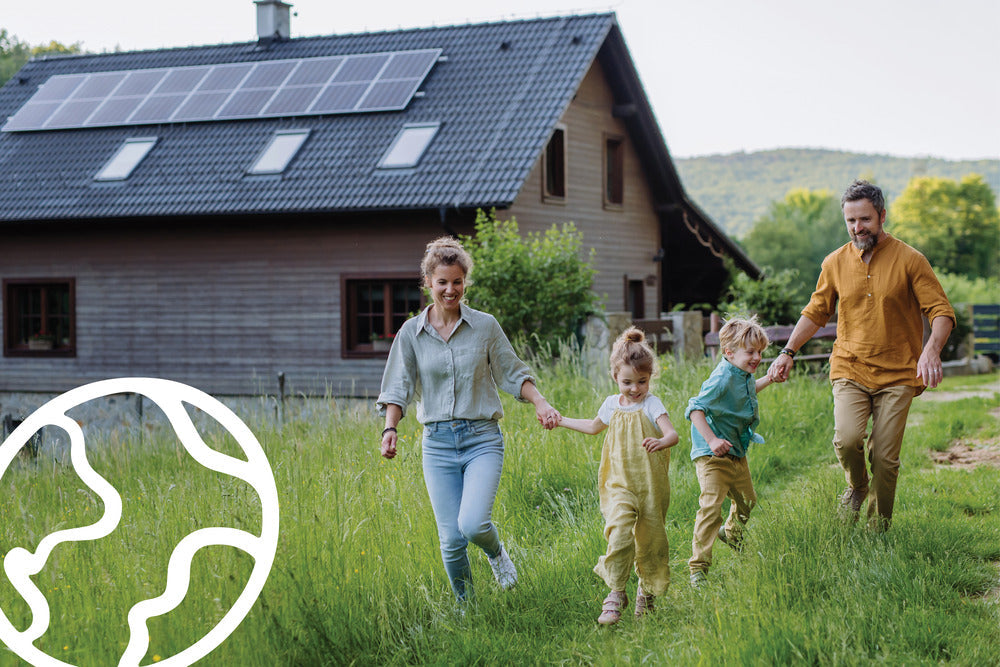Raising kids is already an adventure, but adding a layer of eco-consciousness can feel both inspiring and a little overwhelming. The good news is that a sustainable parenting approach doesn’t have to be complicated or expensive. At Marley’ Monsters, we believe that small, mindful swaps can ease you into greener habits while still keeping up with the demands of busy family life.
Whether you’re exploring cloth diapers for the first time or looking for creative ways to get the kids on board with recycling, sustainable parenting is a journey that grows and evolves alongside your family. Below, we’ve gathered some practical tips to help you bring a spark of eco-friendly fun into your home.

Start with Simple Swaps
One of the easiest ways to dip your toes into green parenting is by replacing everyday disposable items with reusables. Marley’s Monsters offers products like Cloth Wipes and UNpaper® Towels that are designed to save you money, reduce waste, and bring a splash of color into tasks like cleanup or diaper changing. They’re also gentle on little ones’ sensitive skin, making them a popular choice for those looking to avoid extra chemicals or fragrances.
As you become more confident with small swaps, don’t be afraid to take it further. Consider cloth diapers or reusable training pants to cut down on the staggering number of disposables that end up in landfills. For many families, cloth alternatives can be both budget-friendly and surprisingly easy to care for once you find your rhythm. Each disposable diaper avoided helps you reduce your environmental footprint and teach children the value of reusing instead of tossing away.
Family-Friendly Mealtime Habits
Mealtime is one area where disposables can pile up faster than you realize—think plastic zip-top bags, paper napkins, and single-use packaging. Switching to Reusable Snack Bags helps ensure that lunches and snack times generate far less waste. They’re perfect for everything from carrot sticks to little crackers, and they come in fun prints that kids will love showing off at school.
If you want to level up your eco-friendly game, consider cooking larger batches of food to reduce time and energy spent on daily meal prep. Involve your kids in this process by letting them pick a new recipe or help stir ingredients. Over time, you’ll also see a reduction in packaging waste from grocery store trips. Not only will this shift help the planet, but it can also become a quality family bonding experience.

Teaching Kids About Sustainability
Kids are naturally curious and eager to learn, which makes them great partners in a green lifestyle. Start with simple lessons around the house—like turning off the lights when they leave a room or sorting recycling versus trash. Many parents find that explaining the “why” behind each eco-friendly step encourages children to take ownership. If they understand that recycling paper helps save trees for the animals they love, they’ll be more excited to pitch in.
Outdoor activities can reinforce these lessons in a hands-on way. For instance, make a family outing of picking up litter at a local park. Turn it into a game—who can spot and collect the most pieces of trash? This experience not only helps clean up the environment but also shows kids the real-world impact of their actions. When they see how their efforts make a tangible difference, it’s easier for them to connect the dots between daily habits and the health of our planet.
Creating an Eco-Conscious Home Environment
Beyond the kitchen and daily routines, there are plenty of opportunities to cultivate a greener household. Explore non-toxic cleaning solutions to reduce exposure to harsh chemicals and limit plastic waste from single-use bottles. Many families adopt simple DIY recipes using natural ingredients like vinegar, baking soda, and essential oils, which can be both safer for kids and kinder to the planet.
For those looking to go the extra mile, consider investing in indoor plants that help purify the air or opting for energy-efficient appliances when upgrades are needed. Implementing a composting system in your backyard—if space allows—teaches children about the natural cycle of decomposition and waste reduction. Kids can take turns adding kitchen scraps, learning firsthand how yesterday’s banana peel transforms into nutrient-rich fertilizer for the garden.

Navigating Challenges and Staying Flexible
Parenthood is already full of ups and downs, and aiming for a sustainable lifestyle can sometimes add extra complexity. It’s perfectly okay to start small and remember that no one’s eco-journey is flawless. Maybe you rely on disposable diapers during travel or keep a stash of paper towels for emergency spills. The key is not to stress over occasional compromises but to celebrate the ways you’re cutting down waste whenever possible.
Supportive communities—both online and in person—can be a lifesaver. Swap tips with fellow parents who’ve tried different cloth diaper brands or discovered zero-waste hacks. You might find that sharing successes (and failures) helps everyone learn faster and feel more encouraged. Above all, sustainable parenting is a marathon, not a sprint: each day is another chance to model thoughtful choices that reflect love for both your family and the planet.
Fostering a Lifelong Green Mindset
By focusing on small, attainable steps, you’re laying the groundwork for your children to carry these lessons well into adulthood. When they see how Cloth Wipes or Reusable Snack Bags seamlessly fit into daily life, they learn that reusing items isn’t just a novelty—it’s a normal, responsible way to live. As they grow older, they’ll naturally look for other ways to reduce waste, conserve resources, and treat the environment with respect.
In the end, sustainable parenting is all about balance, creativity, and patience. Whether you’re swapping out single-use items, cooking more meals at home, or teaching your kids about composting, every eco-friendly practice you adopt helps your family build a healthier, happier future. By infusing these values into your household, you’re also taking part in a larger movement—one that’s changing the way we think about consumption, conservation, and what it means to leave the world a better place for our children.



